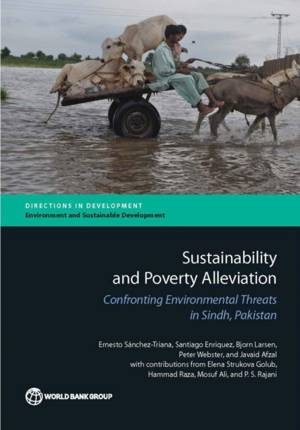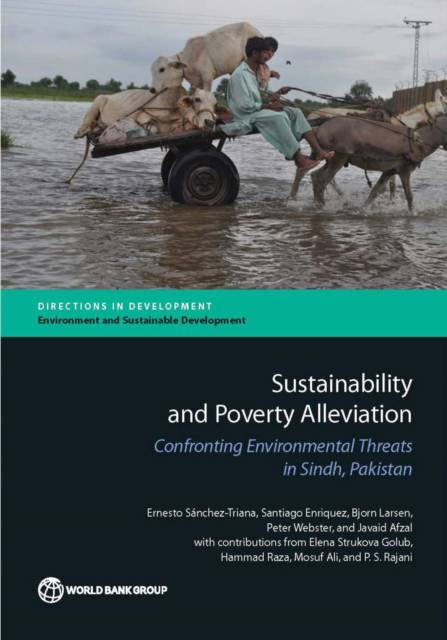
- Retrait gratuit dans votre magasin Club
- 7.000.000 titres dans notre catalogue
- Payer en toute sécurité
- Toujours un magasin près de chez vous
- Retrait gratuit dans votre magasin Club
- 7.000.0000 titres dans notre catalogue
- Payer en toute sécurité
- Toujours un magasin près de chez vous
Sustainability and Poverty Alleviation
confronting environmental threats in Sindh, Pakistan
Ernesto Sanchez-Triana, Santiago Enriquez, Bjorn Larsen
59,45 €
+ 118 points
Description
"In 2009, more than 40,000 people died prematurely in Sindh, Pakistan because of an illness associated with an environmental health risk. This means that almost one of every five deaths that occurred that year was caused by environmental factors. Loss of natural resources and impacts from natural disasters also represent development challenges. Increased salinity and waterlogging result in loss of agricultural crops. In addition, hydro-meteorological hazards recurrently affect Sindh, as illustrated by the devastating effects of the 2010 and 2011 floods. For Sindh's population, these problems mean pain and suffering, and reduced opportunities for economic advancement. The costs of all these phenomena are equivalent to 10% of Sindh's Gross Domestic Product. Climate change may exacerbate these challenges. Sindh's environmental and climate change problems call for urgent responses. A number of feasible interventions could be carried out to address the categories of environmental degradation that have the highest impacts on Sindh's population. Many of those interventions have positive benefit-cost ratios, meaning that every rupee invested in them would result in health and social benefits worth more than one rupee. Addressing these challenges also calls for targeted institutional strengthening and policy improvements, particularly after the 18th Constitutional Amendment devolved environmental management responsibilities to provincial governments. The underlying goal of this book is to facilitate and stimulate sharing of information on these phenomena, and to provide an interdisciplinary framework for bringing about improved environmental conditions in Sindh. It includes a methodology that enables the identification of environmental and climate change priority problems; the analysis of interventions to address such problems; the establishment of a social learning mechanism to continuously improve Sindh's responses and build resilience in the face of climate variability and change; and opportunities for the potential involvement of different stakeholder groups to decisively tackle climate change and deteriorating environmental conditions."
Spécifications
Parties prenantes
- Auteur(s) :
- Editeur:
Contenu
- Nombre de pages :
- 310
- Langue:
- Anglais
- Collection :
Caractéristiques
- EAN:
- 9781464804526
- Date de parution :
- 17-07-15
- Format:
- Livre broché
- Format numérique:
- Trade paperback (VS)
- Dimensions :
- 178 mm x 254 mm
- Poids :
- 544 g

Les avis
Nous publions uniquement les avis qui respectent les conditions requises. Consultez nos conditions pour les avis.






